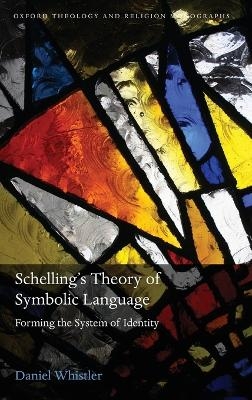
Schelling's Theory of Symbolic Language
Forming the System of Identity
Seiten
2013
Oxford University Press (Verlag)
978-0-19-967373-5 (ISBN)
Oxford University Press (Verlag)
978-0-19-967373-5 (ISBN)
A reconstruction of F.W.J. Schelling's philosophy of language based on a detailed reading of §73 of Schelling's lectures on the Philosophy of Art.
This study reconstructs F.W.J. Schelling's philosophy of language based on a detailed reading of §73 of Schelling's lectures on the Philosophy of Art. Daniel Whistler argues that the concept of the symbol present in this lecture course, and elsewhere in Schelling's writings of the period, provides the key for a non-referential conception of language, where what matters is the intensity at which identity is produced. Such a reconstruction leads Whistler to a detailed analysis of Schelling's system of identity, his grand project of the years 1801 to 1805, which has been continually neglected by contemporary scholarship. In particular, Whistler recovers the concepts of quantitative differentiation and construction as central to Schelling's project of the period. This reconstruction also leads to an original reading of the origins of the concept of the symbol in German thought: there is not one 'romantic symbol', but a whole plethora of experiments in theorising symbolism taking place at the turn of the nineteenth century. At stake, then, is Schelling as a philosopher of language, Schelling as a systematiser of identity, and Schelling as a theorist of the symbol.
This study reconstructs F.W.J. Schelling's philosophy of language based on a detailed reading of §73 of Schelling's lectures on the Philosophy of Art. Daniel Whistler argues that the concept of the symbol present in this lecture course, and elsewhere in Schelling's writings of the period, provides the key for a non-referential conception of language, where what matters is the intensity at which identity is produced. Such a reconstruction leads Whistler to a detailed analysis of Schelling's system of identity, his grand project of the years 1801 to 1805, which has been continually neglected by contemporary scholarship. In particular, Whistler recovers the concepts of quantitative differentiation and construction as central to Schelling's project of the period. This reconstruction also leads to an original reading of the origins of the concept of the symbol in German thought: there is not one 'romantic symbol', but a whole plethora of experiments in theorising symbolism taking place at the turn of the nineteenth century. At stake, then, is Schelling as a philosopher of language, Schelling as a systematiser of identity, and Schelling as a theorist of the symbol.
Daniel Whistler is Lecturer in Philosophy at the University of Liverpool.
I: CONTEXT; II: SYSTEM; III: SYMBOL; IV: METAPHILOSOPHY
| Reihe/Serie | Oxford Theology and Religion Monographs |
|---|---|
| Verlagsort | Oxford |
| Sprache | englisch |
| Maße | 162 x 240 mm |
| Gewicht | 586 g |
| Themenwelt | Kunst / Musik / Theater ► Allgemeines / Lexika |
| Geisteswissenschaften ► Philosophie ► Geschichte der Philosophie | |
| Geisteswissenschaften ► Philosophie ► Philosophie der Neuzeit | |
| Geisteswissenschaften ► Philosophie ► Sprachphilosophie | |
| Geisteswissenschaften ► Religion / Theologie ► Christentum | |
| ISBN-10 | 0-19-967373-X / 019967373X |
| ISBN-13 | 978-0-19-967373-5 / 9780199673735 |
| Zustand | Neuware |
| Informationen gemäß Produktsicherheitsverordnung (GPSR) | |
| Haben Sie eine Frage zum Produkt? |
Mehr entdecken
aus dem Bereich
aus dem Bereich
eine Geschichte der Zuversicht von Homer bis zum Klimawandel
Buch | Hardcover (2024)
C.H.Beck (Verlag)
CHF 39,20
die kolonialen Wurzeln der französischen Theorie
Buch | Hardcover (2024)
Matthes & Seitz Berlin (Verlag)
CHF 41,90


